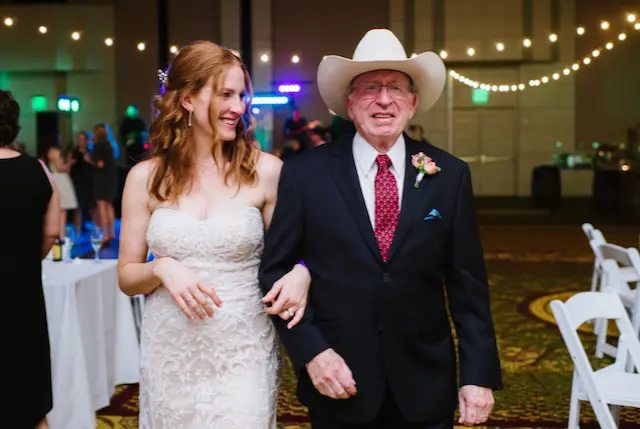
Arthur Mintz loved life. He was an only child who had six children, a farmer who practiced the law, a cowboy who sailed across oceans. He had a unique ability to cultivate genuine connections with people. He made friends easily from all walks of life and all corners of the world. He was flawed and beautiful, and he was my dad.
Arthur was diagnosed with stage 4 bladder cancer when I was 18. He had one of those terrible conversations with an oncologist, the “get your things in order” kind of conversation. But he was a fighter, and he was lucky. Not long after the diagnosis, we were sitting in a room at Stanford Hospital, and he looked at me and said, “Don’t worry kid, I’m going to walk you down the aisle someday.” It became our mantra, after surgeries and chemotherapy, when he was almost too weak to walk, I would encourage him to do a lap around the nurse’s desk by saying it was practice for the wedding.
Over the course of my first year at Suki, I’ve reflected a lot on my dad’s healthcare journey. His initial 6-month prognosis turned into more than two decades and there were countless medical professionals who made it their mission to keep him alive and to support my family along the way. For us, these people were nothing short of superheroes, and I think about how:
- After several failed rounds of chemotherapy, my dad’s oncologist helped us pursue a highly experimental therapy that miraculously worked.
- Several years later, my dad went into liver and kidney failure and learned that it was unlikely he would be eligible for a transplant. But a nurse saw my mom crying on a bench – she comforted her and suggested my mom check out Indiana University Health Medical Center, which was taking more high-risk transplant patients.
- Sure enough, a team at IU shepherded us through the incredibly emotional transplant journey.
- Years later my dad was diagnosed with Parkinson’s Disease, and a new wave of specialists, nurses, and doctors supported us on that path.
There were conversations along the way about clinical care, but also quality of life. What did my dad want out of the time he had left? And how could his family support him – and each other during the ups and downs of chronic illness.
True to his promise, my dad walked me down the aisle in 2016. Three years later he died, on his own terms, and at the end of a very full life. After he passed my mom called a handful of doctors to share the news, each one remembered him fondly and spent time talking with my mom, reminiscing, laughing, even crying.
One of the things that drew me to Suki was a set of values that genuinely guide staff and leadership. I was excited to find a place where values serve as connective tissue across a great team. I love that one of Suki’s values is Walk the Right Path because it’s about doing the right thing. For clinicians that’s often about caring for patients. For many of us at Suki, it’s about supporting medical professionals who give so much of themselves to help those in their care.
For me, it’s an opportunity to give back to the medical professionals who took such incredible care of my dad and my family for so many years. Clinicians deserve the best possible tools to do their jobs in a way that doesn’t lead to burnout. This is the path we’re on at Suki, and I’m excited to see where it takes us.



